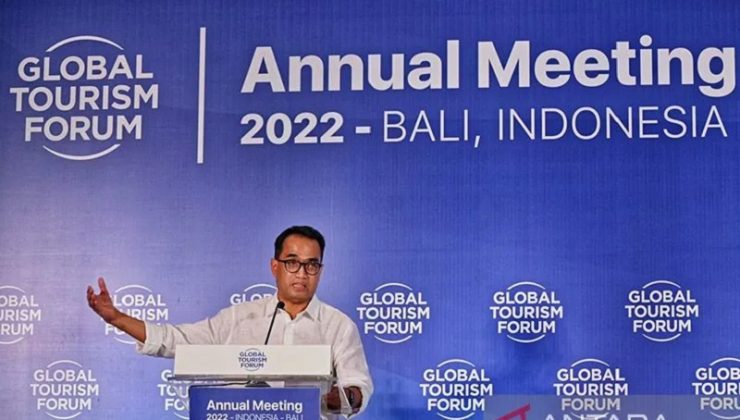THE MINISTER of Transportation, Budi Karya Sumadi said that recovery efforts in the transportation sector have contributed to the recovery of the tourism sector in the country.
“This effort is a turning point for the revival of the transportation industry, because it continues to increase passenger occupancy,” said Budi Karya Sumadi at the Global Tourism Forum or the 2022 Global Tourism Forum-Annual Meeting in Bali, Thursday (11/17).
Budi revealed that a number of efforts were made, including issuing several circulars regarding easier transportation travel requirements but still prioritizing the implementation of health protocols.
In addition, the Ministry of Transportation together with transportation operators also continues to optimize the use of technology to minimize the spread of the virus, such as digitizing services at airports and using HEPA filters that are able to keep the air clean in public transportation facilities.
Furthermore, the Ministry of Transportation also provides a number of incentives, for example in the aviation sector by providing incentives for Aircraft Passenger Services (PJP2U) or Passenger Service Charges (PSC).
In the forum, Budi Karya Sumadi revealed that the recovery efforts have started to show results. One of the indicators is, based on data from the Central Statistics Agency (BPS), transportation and warehousing in the third quarter of 2022 grew the most, namely 25.8% (year on year).
This shows a trend that has continued to increase since early 2022, and has made an important contribution to Indonesia’s economic growth which has increased by 5.72 percent year on year in the third quarter of 2022.
However, the Minister of Transportation reminded all parties to continue to strive to maintain the momentum of the growth trend, and to remain alert to conditions of global uncertainty, such as further pandemics, climate change and global war tensions in the future.
Furthermore, Budi also revealed efforts to build the future of public transportation in post-pandemic Indonesia.
“The COVID-19 pandemic has taught us that we must think ahead. In the future, Indonesia needs to improve network connectivity, transportation safety, environmentally friendly transportation, and intermodal integration,” he said.
He explained, in increasing connectivity between regions, the Ministry of Transportation will continue to build transportation infrastructure both in urban areas and in remote, frontier, lagging, and border areas (3TP).
To overcome the limited state fiscal capacity (APBN) in financing the needs of transportation infrastructure development in Indonesia, the Minister of Transportation explained, he would continue to encourage non-APBN creative funding through the Public Private Partnership (PPP) scheme, state asset funds, utilization cooperation (KSP). ), mixed financing, green financing in green project infrastructure, as well as establishing a Public Service Agency (BLU) and increasing non-tax state revenue (PNBP).
“At the moment of the G20 Presidency, we signed several memorandums of understanding for non-APBN creative funding with three countries, namely Japan, England and South Korea for the development of the MRT Jakarta urban mass transportation,” he noted.
He conveyed, the government is also committed to reducing exhaust emissions from fossil fuel vehicles, by starting to transform energy from fossil fuels to new renewable energy (EBT). The government has set a goal to have at least 2 (two) million electric vehicles by 2025.
The government will develop an electric vehicle ecosystem so that Indonesia is not only a market or consumer of electric vehicles but also a producer, because Indonesia has the potential for natural resources to produce components for electric vehicles.
Budi Karya Sumadi also revealed the importance of strengthening cooperation with stakeholders, be it with ministries or other institutions, state-owned enterprises (BUMN), private sector, academics, media and the public.
An example of what has been done is the collaboration of the Ministry of Transportation, Ministry of Education and Culture, Research and Technology, Higher Education, and INKA to make the Red and White electric bus used in the G20. Also collaboration between the Ministry of Transportation, Jakarta Government Province, and the operator (PT MRT) to develop urban mass transit. [antaranews]
















